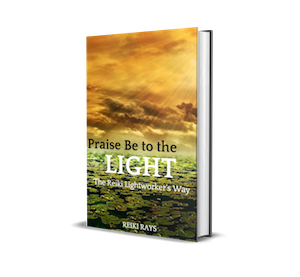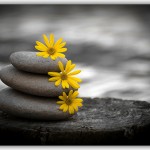The definition of a rule is “one of a set of explicit or understood regulations or principles governing conduct or procedure within a particular area of activity, exercising control of or dominion over an area or people”.
Basically, rules are designed and implemented to direct, control and modify behaviour. As societies evolve and become more civilised rules imposed by brute force and intimidation gradually give way to imposed control via laws and legislation. These are introduced and imposed by the same people who advocated violence when it was generally accepted (if not by those on the receiving end) as a legitimate and effective means of managing and controlling the populace.
In any civilised society there has to be an appropriate legislative structure in place to ensure stability, public safety and socially acceptable codes of conduct and behaviour, whilst safeguarding our human rights. All well and good, but with every right comes a personal responsibility in the way the person exercises those God-State given rights, and history shows very clearly society supports and rewards those who play by society’s rules. Organisations work on the same basic principles if on a smaller scale, those seen as a team player often reap benefits denied to equally talented individuals for no other reason than they know how to play the corporate game and “get with the programme”. Gifted or talented personnel who may appear individualistic in their approach are often labeled a “loose cannon” for their perceived cavalier approach. Their attitude and behaviour is responsive as opposed to reactive, so each situation may require a different solution instead of a one size/reaction fits all, for no other reason it’s what the rule book, training manual demands.

Image by jbauer-fotographie
Loose canons are perceived as an unknown quantity, unpredictable and unreliable from the point of view of the inability of corporate rules and regulations to control what they think and how they behave. Instead they tend to be guided by their own thoughts, beliefs, life experience and values. We are conditioned throughout life to fit in, comply and follow the rules, from parental guidance, educational development to social responsibility and conformity, yet when life or circumstances require us to think ‘’outside of the box’’ it is usually the initiative wild card who steps up, gets the job done and saves the day. In that moment the personal doubts and uncertainty disappear as their unique approach and individuality is vindicated. In dealing with the situation before them they chose not to just go with what the book says and find the courage to trust their own judgement. A judgement based on personal and relevant life experience, knowledge and understanding.
This is a decision many therapists, practitioners and teachers face on a regular basis in the way they work or instruct their students. Tradition has its place but the fact something is defined as traditional doesn’t automatically infer a quality kite mark or guarantee its teachings are factual or truthful. Conversely neither should tradition be considered old, outdated or surplus to requirements. The old and the new must face the same acid test of having their truth demonstrated. The truth is what it is and is always validated in and through the challenge to its integrity, whereas a lie or misconception must be dressed to make them appear more than they are, and more readily acceptable. Tradition has its rightful place but it should never be taught in the guise of faith and trust and at the expense of knowledge and understanding.
Times change as does our perception and the knowledge and understanding available to us at any given moment in time, and what we hold to be true is both subjective and relevant to our evolving awareness of who we are, where we came from and the role we personally have to play in the development of us collectively as a species and our future on a tiny blue planet that sustains us. Rules and regulations have their place and bring comfort to many but we are facing extraordinary challenges demanding solutions born of critical and intuitive thinking, a willingness to learn from the past and the courage to rewrite the rule books.
Article by Phillip Hawkins
Free eBook download: We’ve created an eBook with our best articles on this topic, and offer it for free to all our newsletter subscribers.


A Reiki practitioner since 1999, Phillip started teaching Reiki in 2000 and using those skills and abilities he has spent the majority of the last seventeen years working with a wide range of social and educational needs including Autism and ADHD. Working with addicts dependent on alcohol and drugs, people whose lives were extremely violent and abusive, and others who had to deal with severe mental health issues. This has enabled him to work extensively in the private sector, schools, colleges, education and care in the community, the prison service and psychiatric units.
In 2016, Phillip decided to semi-retire from full-time employment to concentrate on developing his career as a published author and the setting up of his Reiki personal development programme at the Chilton Community College.





I find this a mishmash of generalities, requiring very critical thinking -or none- on the part of the reader, to see the valuable parts. I think ‘responsive’ is virtually the same as ‘reactive’ and think you meant to say, ‘pro-active’ versus passive.. or so, and, looking at some of the other internal contradictions, I suggest you get a critical editor… ‘history shows very clearly society supports and rewards those who play by society’s rules.’ Do you believe this?
One question: Is this a university? I know the ex-president of USA ran one, but do you offer undergraduate and postgraduate degrees? A university (Latin: universitas, ‘a whole’) is an institution of higher (or tertiary) education and research which awards academic degrees in various academic disciplines. … In the United States, universities must offer graduate degrees; institutions offering only undergraduate degrees are colleges.’Wiki’
To me this article connects back to possible firmer regulation of Reiki and energy healing modalities. It is relevant to me as I’m trying to blend energies between shamanism, energy work and the corporate environment. Mind to mind activation is quite strong. There is a literal disconnect between spiritual and corporate realms to a point, especially when the very human side takes over.
Thank you for the article. Sometimes we find ourselves in certain role plays due to our design, intention, perceived needs. The world that opens up can be challenging to others when they find and append a label… When working… working with gratitude, in meditation and prayer with blessings. Back to the world…. at times Universal law tends to balance once the Truth is spoken. Truth without boundaries, truth influenced by experiences, emotions, labels, training. Grounded and ready to be grateful for work today.